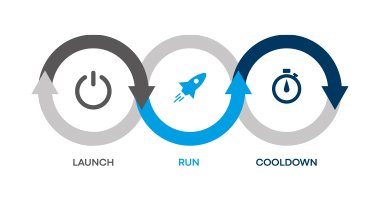Understanding data as a valuable product for evidence-based decision making

What is meant by evidence-based?
The fundamental mindset of evidence-based comes from medicine. Borrowing from this, evidence-based management (EBM) calls for executive-level decisions to be made based on scientific methods and empirical evidence.
For managers, this has the advantage of providing them with a method by which they can make comprehensible decisions and no longer have to rely solely on their instincts and experience.
These top 5 benefits can be attributed to evidence-based management
- Optimization of outcomes due to better decision-making
- Risk reduction and minimization of uncertainties
- Increased efficiency of measures, strategies and processes
- Quality assurance and identification of optimization potentials
- Promotion of customer orientation and innovation
All findings of meaningful data analyses are valuable
At the beginning there is a management topic, a requirement, a problem, which is to be examined more closely on the basis of evidence, in order to be able to set comprehensible decisions, specifications or actions in consequence. Such an approach requires the will and the courage to analytically look behind the facades and to accept unexpected, possibly undesirable findings from the analysis. After all, evidence-based work does not pursue the goal of always confirming one’s own expectations. Unanticipated results should also be accepted with reflection and lead to appropriate actions.
What role does data play in evidence-based decisions?
In addition to external data, internal data collected within the company or organization play a central role in analyses. This can be subjective outcomes from employee surveys, employee interviews or internal reviews, as well as objective data such as sales figures, productivity ratios, sickness rates, error rates, etc.
The correct assessment and selection of internal or external data is crucial for the quality of the data analysis. But that’s not all. The analysis ends only when the objective data and results can be related to the previously collected subjective hypotheses, results from interviews or subjective assessments and consequently validated or not validated. This step in the analysis is often omitted in practice. However, relevant conclusions can only be drawn when the data are linked together.
Consequently, a targeted analytics strategy with corresponding implementation know-how is of great importance for the success of evidence-based management.
How can we support you in setting up and implementing a goal-oriented analytics strategy?
To gain these valuable insights into data and business contexts, an IT-based overall approach is required in which raw data is converted into information and further into knowledge: the task spectrum of Business Intelligence (BI) and Business Analytics.
With the experience of more than 450 consulting and implementation sprints in BI projects, we are at your side as a competent partner. We combine holistic BI consulting and implementation in an agile process model:

- Launch
At the beginning of a sprint (“LAUNCH”), the analysis intent and the overarching goals are defined with the stakeholders and the alignment to the corporate strategy is ensured. In the process, a suitable Business Intelligence strategy is defined, whereby you benefit from the practical know-how of our BI consultants. During interactive workshops, goals and the corresponding schedule are defined.
- Run
In the implementation phases (“RUN”), we build the technical infrastructure with you, integrate and refine your company data and use this data in BI models. Then, our BI consultants work with you to create target-group-oriented, interactive dashboards and reports. During iterative sprints, analysis parameters are tested and adjusted as necessary.
- Cooldown
The evaluation phases (“COOLDOWN”) are used to critically review the pre-defined objectives to determine whether the data models are suitable for the requirements. All steps take place together with you, so that later adjustments can be implemented independently.
Benefit from our consulting approach and our experience in technical implementation
Our approach at a glance:

Your advantages with the BI ecosystem OMNILYTICS
OMNILYTICS is a modularly structured all-in-one solution for requirements in the areas of Business Intelligence, reporting and analytics based on the market leader Microsoft®. With the OMNILYTICS Data Factory Solution, you create a central data pool that you can draw on for all your analyses. With OMNILYTICS Modeler, you create data models that form the basis of your individual dashboards and reporting. OMNILYTICS BPMN helps to better evaluate automated workflows. The OMNILYTICS Library offers already proven BI templates for a fast and efficient implementation.
Learn more about the detailed features of OMNILYTICS.